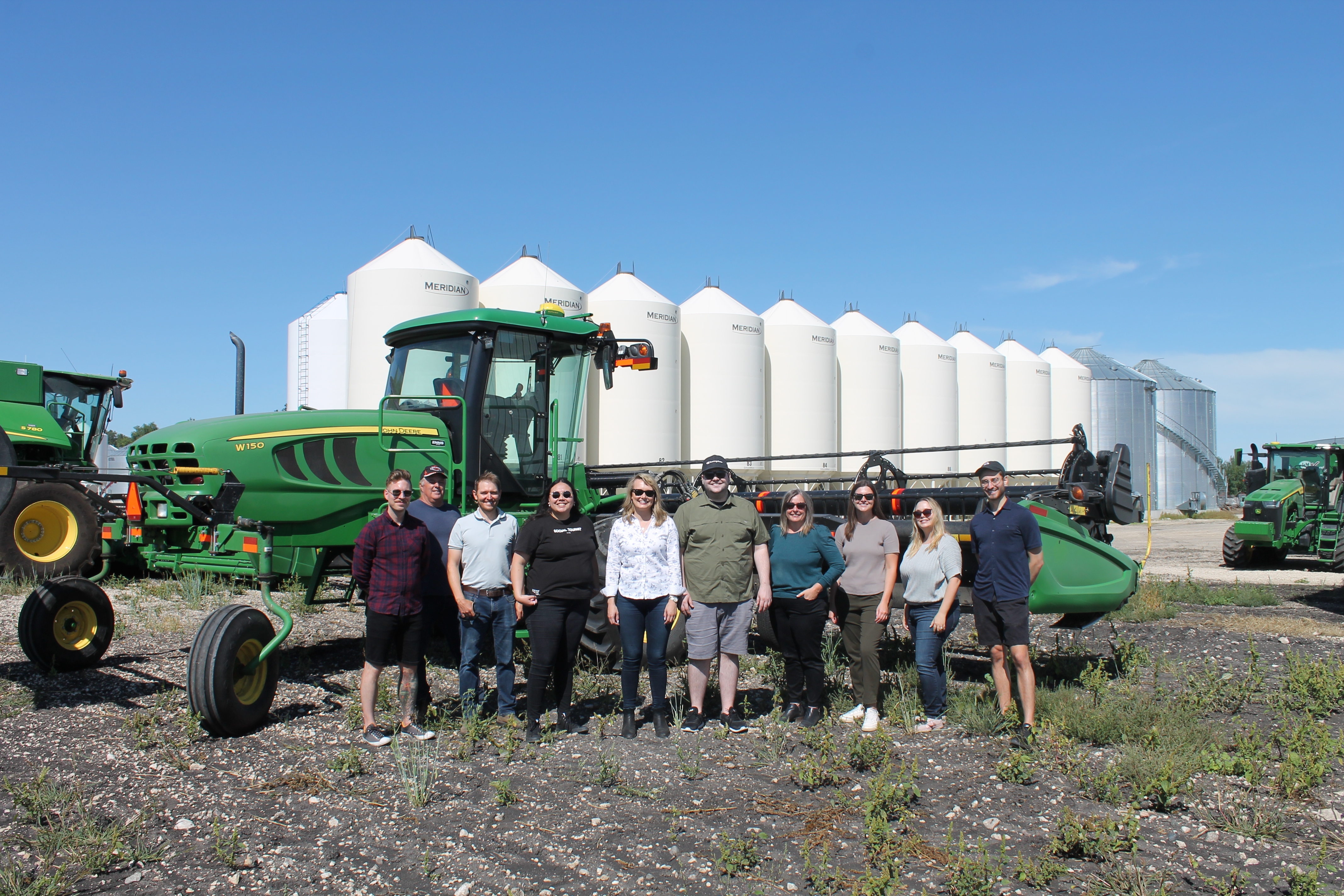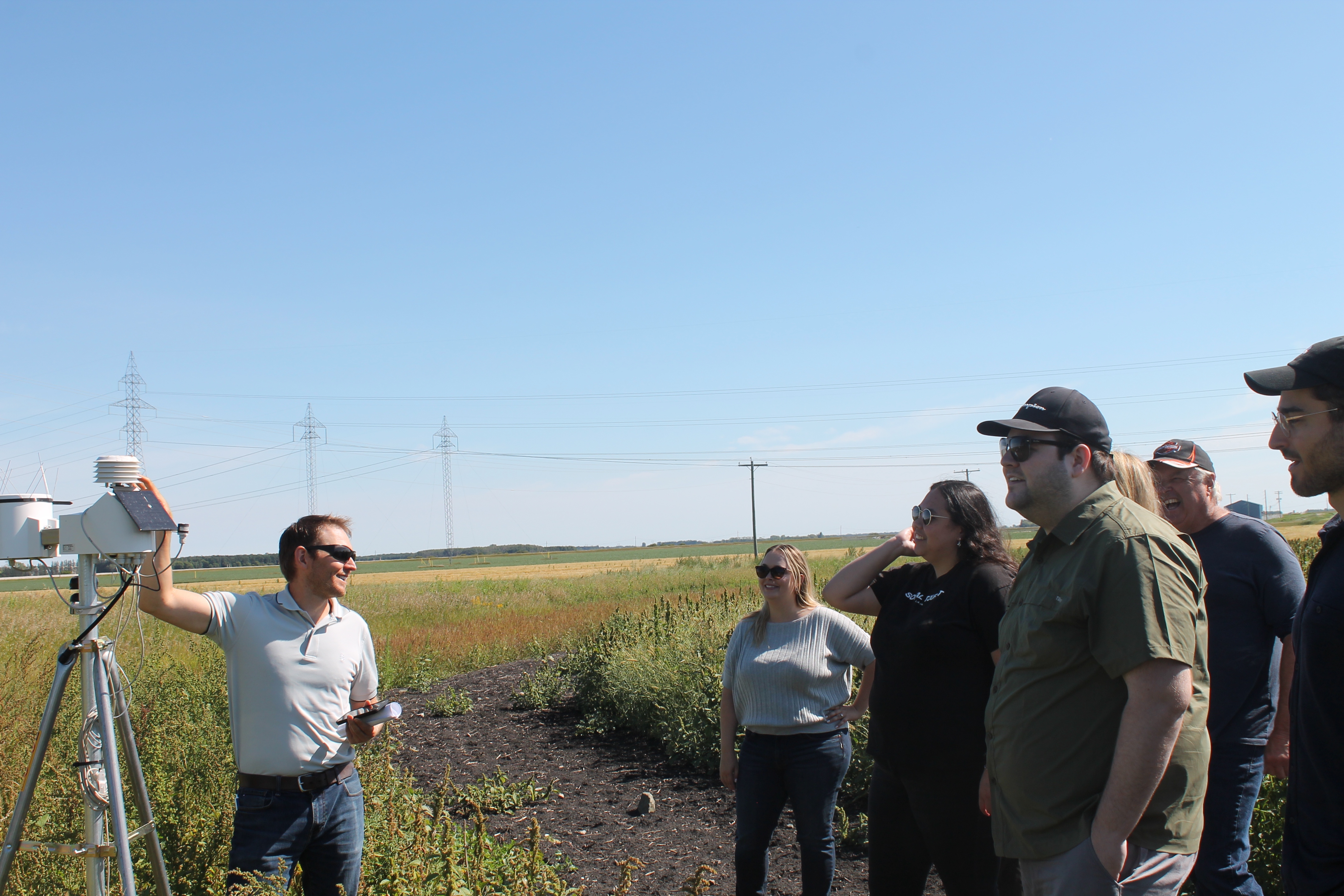Smart technology adoption leads to benefits across the value chain
- Posted:

Investment into Canada’s plant-based sector is fostering significant and exciting innovation. New products are appearing on retail shelves and in restaurants on a regular basis, both here in Canada and around the world.
Just as important, innovative minds across the country are also looking at new ways of using technology to help them develop the healthy, sustainable protein the world is demanding.
“We’ve already seen immense benefits from advances in seed genetics, enhanced efficiency fertilizers, and improved processing technologies for more efficient and effective protein extraction as well as an improved sensory quality,” Alberta Innovates Acting Executive Director of Agri-Food Innovation Ron Clarkson said. “The next shift we’re expecting to see is related to the digitalization of agriculture and food processing to make use of the information in real time and along the entire production cycle, from breeding to harvest and post harvest. Environmental, management and genetic data can be combined to provide a more accurate analysis of the plant potential. We also expect to see extraction and processing techniques that will make the plant-based alternative protein sector more environmentally sustainable.”
As the sector evolves, companies across the value chain have a variety of technology-based tools at their disposal. While many come from the development of tools in other sectors—such as artificial intelligence—others come from direct investment into the sector itself.
The McGill Centre for the Convergence of Health and Economics, for example, is leading a Protein Industries Canada project with Canada’s food and beverage organizations that relies on data to build a national, sector-wide platform that will help Canada’s plant-based companies make connections and build partnerships. Through this improved use of technology, the sector will help to strengthen Canada’s domestic food supply chain, while improving its own international competitiveness.
However, according to Laurette Dube, Chair and Scientific Director at McGill Centre for the Convergence of Health and Economics, creating this technology isn’t enough. It must also be accessible to Canada’s plant-based companies.
“Economies are made of SMEs,” she said. “It’s not just getting technology to them, it’s finding ways of making sure [they] know how to use it … and doing so in a manner that doesn’t interrupt everyday business.”
Jacqueline Keena, Managing Director at the Enterprise Machine Intelligence & Learning Initiative (EMILI), agrees with this sentiment. Much of EMILI’s work — including three projects co-invested through Protein Industries Canada — is focused both on developing data-driven solutions for the agriculture and agrifood industry and ensuring they’re accessible to the sector.

One such project is the EMILI Data Initiative. The project aims to address data literacy gaps in the agrifood sector and is engaging with important questions raised by the growing use of data, both on-farm and beyond the farm gate. Ultimately, the project aims to build the data governance capacity in the agrifood sector so that business owners can make smart, strategic decisions when it comes to data and digital technologies.
“Data literacy training is vital to increase understanding of the fast-changing context surrounding digital technology in the agriculture sector and enable people to ask the right questions of their trusted advisors, technology vendors and equipment dealers,” Keena said. “Our goal is to reach people working in the agrifood sector who we know are already busy with their day-to-day responsibilities. That is why we are designing our training materials to be clear and easy to digest, while providing access to solid, trusted, and reliable information.”
Asking the right questions is a crucial step in the technology adoption process. Dube stressed that questioning a technology’s usefulness long-term is one of the most important things a company can do before implementing a full adoption plan.
“Look at [your] own portfolio, market and performance, and see how new technology would fit. What would the new technology address?” she said. “How does the new technology fit, and will it be sustainable for your business? What is its lifetime?”
Once such questions are addressed and a new piece of technology is successfully adopted, its potential benefits can be well worth the cost. Most often, companies find themselves in a position to scale their operations, develop new products more efficiently or lower their greenhouse gas emissions—all while increasing their contribution to Canada’s economy.
Such benefits reach far beyond the company level.
“Data-driven insights can also improve decision-making and help increase environmental performance while also offering consumers greater transparency about where their food comes from,” Clarkson said. “Genetic tools have the potential to increase protein yield per crop hectare and to improve sensory attributes/functionality and food production practices. With the opportunity to share the data, there’s also better access to information for producers.”
